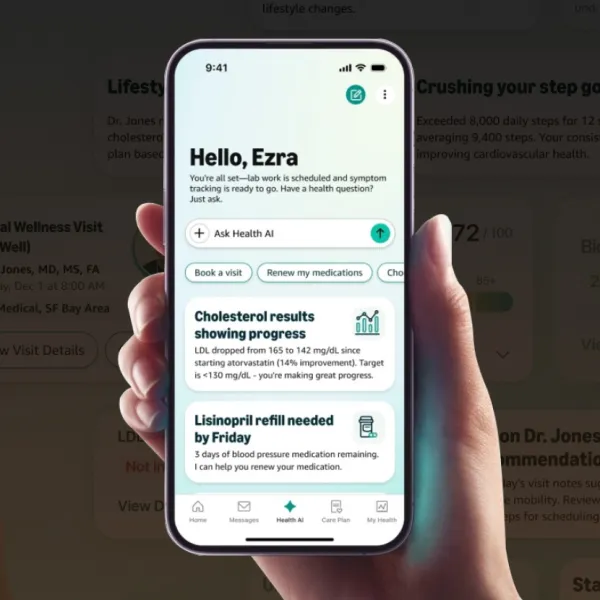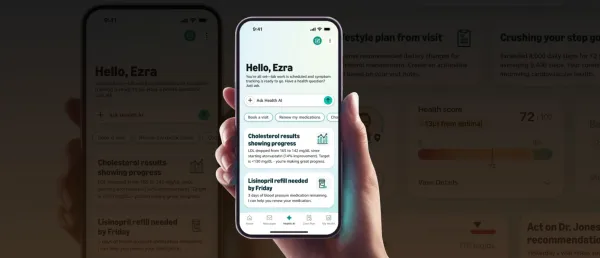Oracle Health Unveils New Clinical AI Agent to Enhance Physician Efficiency

Built on generative AI technology, this AI-powered assistant aims to reduce the time doctors spend on documentation and administrative tasks, allowing them to focus more on patient interaction.
Oracle Health has introduced a second-generation Clinical AI Agent, designed to help medical practitioners enhance productivity and patient care. Built on generative AI technology, this AI-powered assistant aims to reduce the time doctors spend on documentation and administrative tasks, allowing them to focus more on patient interaction.
The Clinical AI Agent integrates seamlessly with Oracle Health applications, such as Electronic Health Records (EHR) and drug databases. This integration allows doctors to quickly access patient data, make informed clinical decisions, and generate actionable insights. It is capable of improving documentation accuracy, offering suggestions for clinical follow-ups, and automating coding tasks, ultimately simplifying the clinical workflow.
Dr. Scott Eshowsky, Chief Medical Information Officer at Beacon Health System, shared his experience: “The feedback from our team on the Oracle Health Clinical AI Agent has been overwhelmingly positive. Our physicians see how it can dramatically improve their quality of life. For me personally, it has been wonderful to be able to dedicate more time counselling patients about their diagnoses and treatments, rather than focusing so much energy on manual documentation.”
Reducing Documentation Time and Enhancing Patient Care
The AI Agent’s ability to generate accurate draft notes in multiple languages has been particularly beneficial for healthcare providers. It reduces the time spent on documentation, allowing practitioners to devote more time to direct patient care. Providers have reported a significant reduction in the time spent on documentation, with some, like AtlantiCare, seeing a 41% reduction. This has resulted in an average saving of 66 minutes per day.
Michael Charlton, President and CEO of AtlantiCare, commented on the impact: “Our physicians have seen improvements in patient engagement and professional satisfaction, thanks to reduced manual documentation. By enhancing visit summaries, we ensure that both clinical and administrative teams are aligned, ultimately improving the patient experience.”
The AI Agent also generates condition-specific medication histories and discharge summaries, providing physicians with rapid insights to support clinical decision-making. This feature contributes to improved patient outcomes by ensuring that practitioners have access to accurate, up-to-date information in real-time.
Addressing Challenges in AI Adoption in Healthcare
While Oracle Health’s AI technology has shown promise in improving clinical workflows, the healthcare industry still faces challenges in fully integrating AI into everyday practices. Issues such as data privacy, regulatory concerns, and ethical considerations remain at the forefront.
“Oracle Health Clinical AI Agent exemplifies the ability of Oracle AI to overcome longstanding industry challenges,” said Seema Verma, Executive Vice President and General Manager at Oracle Health and Life Sciences. “From reducing burnout to enhancing patient satisfaction and improving reimbursement processes, the Clinical AI Agent is changing the lives of practitioners and the patients they serve.”
As AI adoption in healthcare continues to grow, the industry must address regulatory hurdles, data privacy concerns, and the potential for algorithmic bias. Healthcare providers need to maintain strict oversight of AI-driven insights to ensure that clinical decisions remain in the hands of human experts.
Stay tuned for more such updates on Digital Health News































